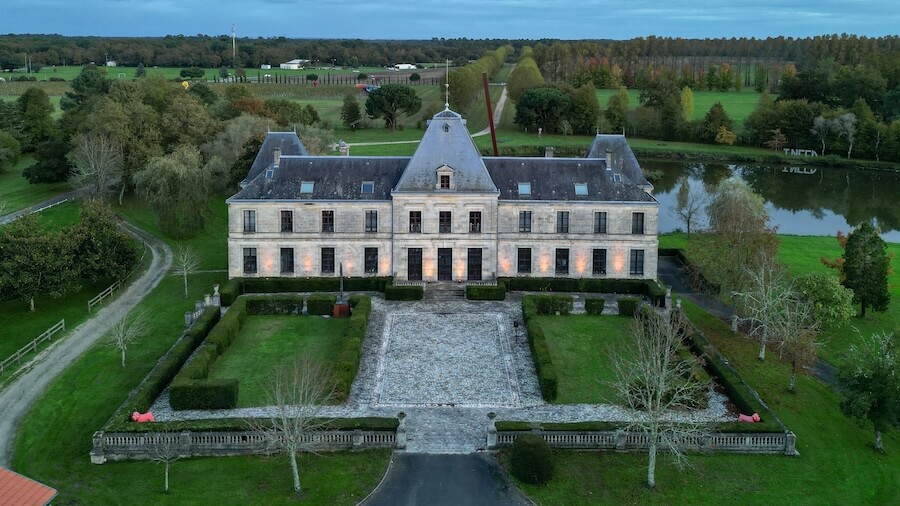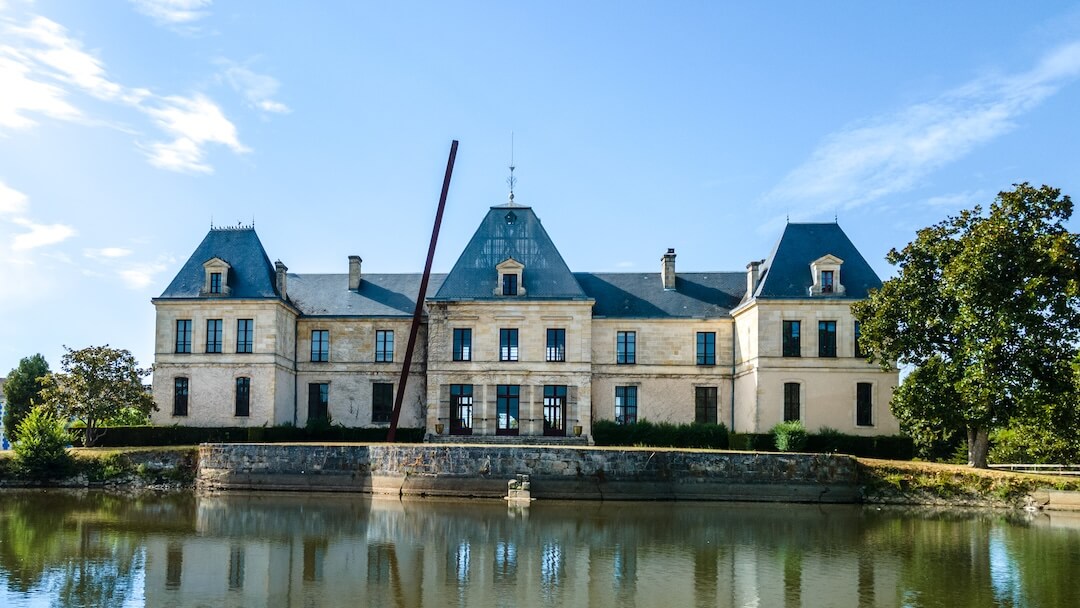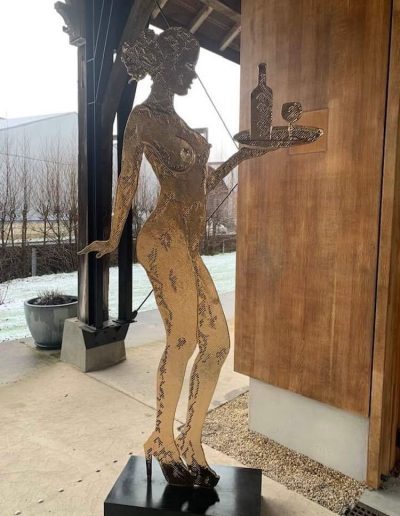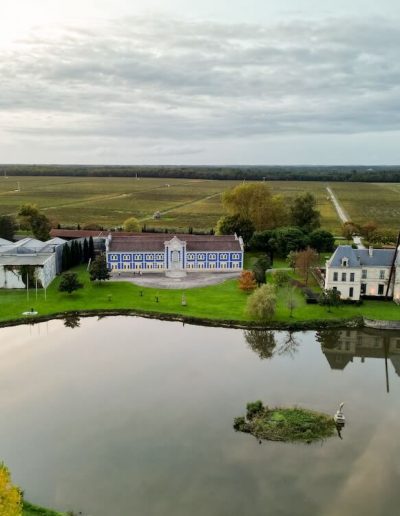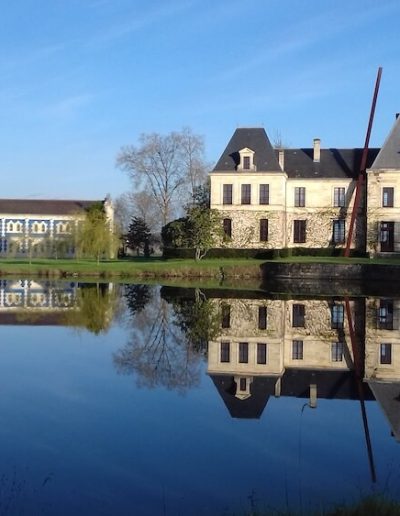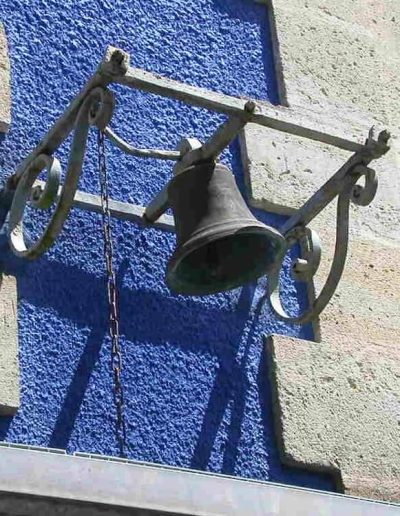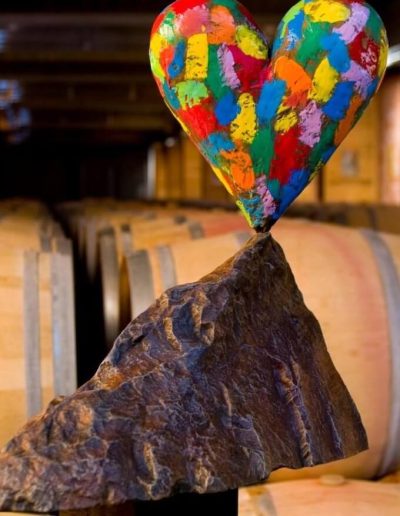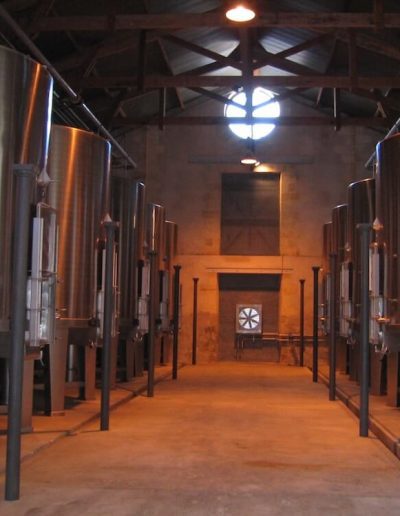Millennial Tradition
Founded nearly 1000 years ago, Château d’Arsac draws its strength from its rich and eventful history. Each plot bears witness to a unique winemaking heritage in the heart of Médoc.
Contemporary Renaissance
Since 1986, Philippe Raoux has breathed new life into the estate, combining demanding viticulture, bold architectural design, and a monumental contemporary art collection.
Art and Wine in Harmony
1000 Years of History between Tradition and Renaissance
The Origins of a Great Médoc Estate
The first traces of Château d “Arsac date back to the 12th century, when it was the property of the Lords of” Arsac. Over the centuries, the estate passed into the hands of illustrious families, including Thomas de Montaigne, brother of the famous philosopher Michel de Montaigne, in the 16th century. As early as the 18th century, the first Merlot and Cabernet Sauvignon vines were planted there, announcing the site’s viticultural calling.

From Prestige to Abandonment
At the beginning of the 20th century, Château d’Arsac was the largest vineyard in Médoc. Unfortunately, the phylloxera crisis ravaged the vines, leading to the total uprooting of the vineyard. During the delimitation of the Margaux AOC in 1954, the estate, left abandoned, was excluded from the appellation.
The Renaissance Orchestrated by Philippe Raoux
In 1986, Philippe Raoux, a passionate Bordeaux wine merchant, acquired the ruined estate. He undertook a true reconstruction: replanting the vineyard, rehabilitating the buildings, modernizing the cellars, and giving the château a new aesthetic and cultural identity. This ambitious project restored the estate’s prestige and firmly placed it in modernity.
Recognition at the Highest Level
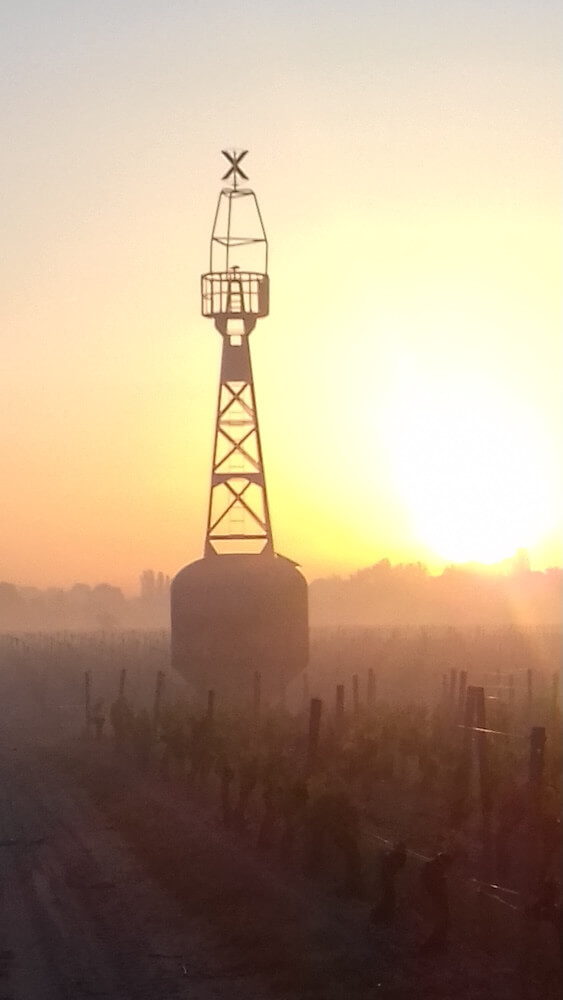
An Exceptional Terroir in Margaux and Haut-Médoc
An Ideally Located Vineyard
The Château d’Arsac vineyard spans 90 hectares of vines, uniquely distributed:
- 54 hectares in AOC Margaux, one of Médoc’s most prestigious appellations.
- 32 hectares in AOC Haut-Médoc, renowned for its aging wines and aromatic balance.
- 4 hectares in AOC Bordeaux Blanc Sauvignon, offering white wines of great freshness.
Remarkable Soils
Château d’Arsac’s sandy-gravelly terroir, composed of alluvium and gravel resting on clay subsoils, benefits from optimal natural drainage and a microclimate tempered by the proximity of the Gironde estuary. These conditions allow the grape varieties to express their full aromatic richness and finesse.
A Grape Variety Selection Designed for Excellence
The choice of grape varieties reflects Médoc’s identity:
- 60% Cabernet Sauvignon
- 40% Merlot
- 100% Sauvignon Blanc (for the whites)
This balance allows for the production of elegant, complex, and perfectly structured wines for aging.
Precision and Passion in Viticulture
Throughout the year, the estate’s teams practice demanding viticulture, combining ancestral know-how and modern techniques:
- Pruning, disbudding, leaf removal, green harvesting
- Manual and mechanical harvesting, rigorous grape selection
- Careful sorting before vinification
Under the supervision of renowned oenologist Éric Boissenot, each vintage is crafted with precision to best express the identity of each plot.
Heir to a millennial history and visionary in its viticultural and artistic approach, Château d’Arsac offers much more than a simple wine estate. It tells the story of a renaissance, of a unique terroir, and of a constant passion for excellence. A permanent invitation to discover the soul of Médoc in all its splendor.


